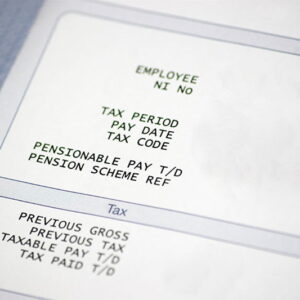New NIC deadline: get the best State Pension deal

This content is for information purposes only and should not be taken as financial advice. Every effort has been made to ensure the information is correct and up-to-date at the time of writing. For personalised and regulated advice regarding your situation, please consult an independent financial adviser here at Smith & Pinching in Norwich, Lowestoft and Eaton. The Financial Conduct Authority does not regulate taxation advice, estate planning or inheritance tax planning.
The State Pension remains one of the most important “pillars” in a typical UK retirement strategy. In 2023-24, the full new State Pension offers £203.85 per week (£10,600.20 per year), which can cover an important portion of many households’ essential retirement spending.
To get the best State Pension, an individual needs a complete National Insurance (NI) record. Where “gaps” exist, creating an incomplete record, there may be the option to complete them by making voluntary NI contributions.
Normally, you can only do this for incomplete years over the previous six tax years. However, for a limited time, taxpayers can also do this for the period 2006 up to April 2017. The tax year 2017/18 can be filled up to 5 Apr 2025 also (rather than having to be filled this tax year). This arrangement was originally set to expire in April 2023. Then, it was extended to 31st July 2023. Now, it has been extended further to April 2025.
In short, there could be just two years left to take advantage of the government’s offer and get the best State Pension deal. Below, we explore how certain taxpayers may benefit and how to approach the voluntary NIC deadline. Please get in touch for more information or to arrange a no-obligation financial consultation:
01603 789966
Why getting the best State Pension matters
The State Pension has at least two advantages which, combined, are difficult for other pensions to match. Firstly, the income is guaranteed for life once an individual starts claiming it after reaching their State Pension age. Secondly, the income rises each year by at least 2.5% under the “triple lock” system – helping to preserve the individual’s spending power in retirement.
In 2023, a retired household likely needs at least £19,900 a year to meet their minimum essential costs. The full new State Pension, currently offering £10,600.20 per year, can comprise around half of this. Indeed, two individuals living in the same property could receive two State Pensions which cover these costs entirely.
Getting a good State Pension also helps to diversify your income sources in retirement. Rather than relying on just one source, an individual might have two, three or more (e.g. State Pension, annuity and private pension) to sustain them. During periods of higher inflation, for instance, the State Pension might shine its colours especially bright – e.g. April 2023, when it rose by 10.1% to reflect inflation figures in September 2022.
How voluntary NICs can help
Generally speaking, to get the full new State Pension, an individual must have 35 “qualifying years” of NICs (National Insurance contributions) on his/her record. A man must have been born on or after 6 April 1951; for a woman, she must be born on or after 6 April 1953. You need at least 10 years on your NI record to get any State Pension at all.
Naturally, getting the best full new State Pension means hitting the 35 qualifying year “target”. Yet, for those with incomplete NI records, voluntary NICs can be a way to set them straight. By looking back to find “gaps” or “missing years”, an individual can complete one or more missing years and work towards getting the 35 years they need.
Buying a full missing year can cost as much as £824.20. However, given that each full NI year adds up to £302.64 to someone’s pre-tax State Pension each year, it can be worth it. By the third year, the voluntary payment starts paying for itself.
Do I need to make voluntary NICs?
The suitability of voluntary NICs depends on your unique circumstances. If you already have 25 qualifying years on your record then you likely do not need to worry. Moreover, those who are still working may accumulate the required years automatically by continuing their employment. For instance, if you already have 25 qualifying years on your record and you plan to continue working for at least another 10 years, then you may attain the full new State Pension by default.
However, what if you might not have enough time to accumulate the remaining years you need, simply by working? Here, voluntary NICs may be appropriate. However, check that you have not missed out on any NI credits which you may have been entitled to, but missed. For example, perhaps you took time out of your career to raise a family but did not claim all of your Child Benefit. Maybe you did some jury service or you were a spouse of a member of the armed forces. Once you have exhausted these options, it may be time to look at voluntary NICs.
Here, a key issue to consider is longevity. How long are you likely to live? For instance, the life expectancy for a 65-year-old British woman is currently 87, qualifying for the State Pension at 66. Assuming such a woman has good health, she might enjoy at least a 21-year retirement. This is plenty of time to enjoy the financial benefits of a voluntary NI payment. However, someone in relatively poor health may face a more difficult decision.
Invitation
If you are interested in discussing your own financial plan or investment strategy with us, please get in touch to arrange a no-commitment financial consultation at our expense:
01603 789966








